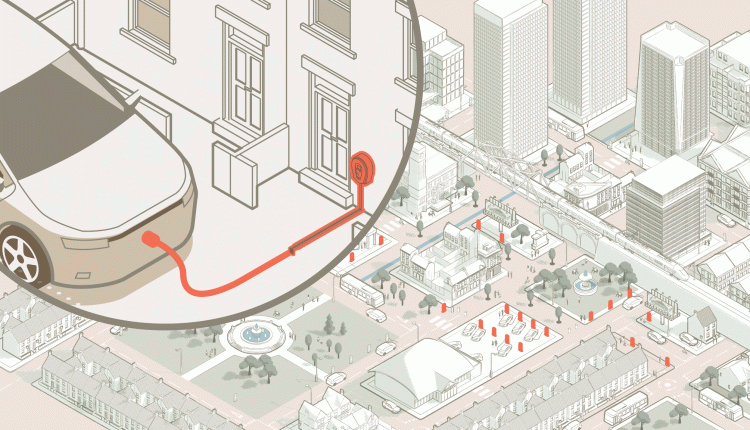Residents with private charge points are also beginning to share their facilities. Services such as Co Charger offer a kind-of Airbnb for charging, where drivers can book use of a neighbour’s facility.
Cables underneath pavements could also help more people access private plug-in points, particularly on the UK’s many terraced streets, but they are not without their challenges.
Chris Richmond, who paid around £2,000 to have a gully installed at his terraced home in Bounds Green, London, now has access to cheaper charging and no longer has to rely on nearby public devices, which he says are often busy or broken. But using his private charger requires him to park directly outside his home. “If someone’s parked in the two spaces it works in outside your house, you’re stuffed,” he says.
There are grants available for some people wanting to fit new chargers, such as those living in flats and landlords of residential and commercial properties, but they are due to end in March.
New home plug-in points are also required to communicate in real-time with energy suppliers, enabling companies to offer consumers cheaper prices when supply is plentiful and encouraging motorists to avoid peak times and lessen strain on the grid. “Our R&D now is much more focused on how we help customers optimise their time of use,” says Melanie Lane, chief executive of home and business charger provider Pod Point.
Vehicle-to-grid (V2G) technology is also being developed that enables cars to sell electricity back into the system. A trial by Ovo Energy in 2020 reported that drivers could earn £340 a year on average by doing so. Octopus Energy’s new V2G tariff guarantees free charging to drivers who plug in for about six hours a day, allowing the company to optimise their charging, as long as they stay below the limit of 333kWh per month — roughly 19,000km (12,000 miles) a year.
Despite the progress made over the past few years, many drivers still do not feel confident making the switch. Recent surveys have consistently shown motorists have concerns around pricing, charging and the durability of batteries.
“The really big thing that’s playing into this is just the perception,”says Ginny Buckley, founder of Electrifying.com, an EV buying advice site.
According to a poll of petrol and diesel car drivers conducted for the non-profit Energy and Climate Intelligence Unit in April last year, more than half the respondents got just two or fewer answers correct out of 10 statements about EVs.
More needs to be done to tackle these public misconceptions, says Max Warburton, chief financial officer for UK self-driving car start-up Wayve. “It’s actually quite compelling to buy an electric vehicle, so we’re getting to the point where some of the apparent consumer reticence is almost irrational,” he says.
Read the full article here

